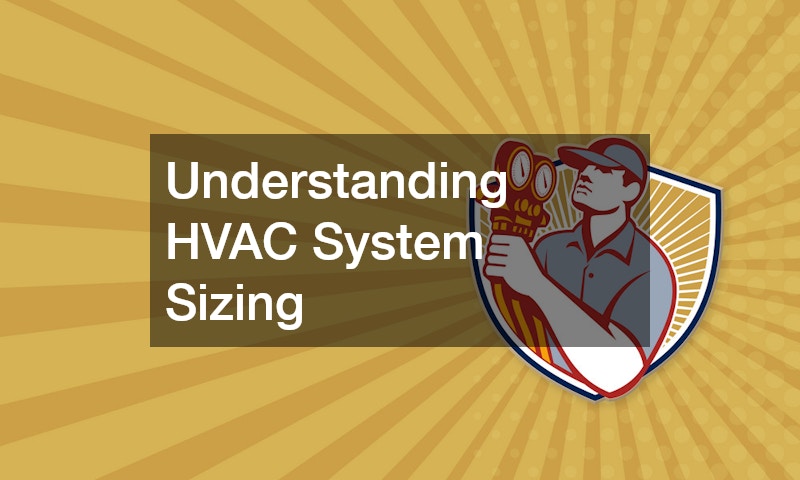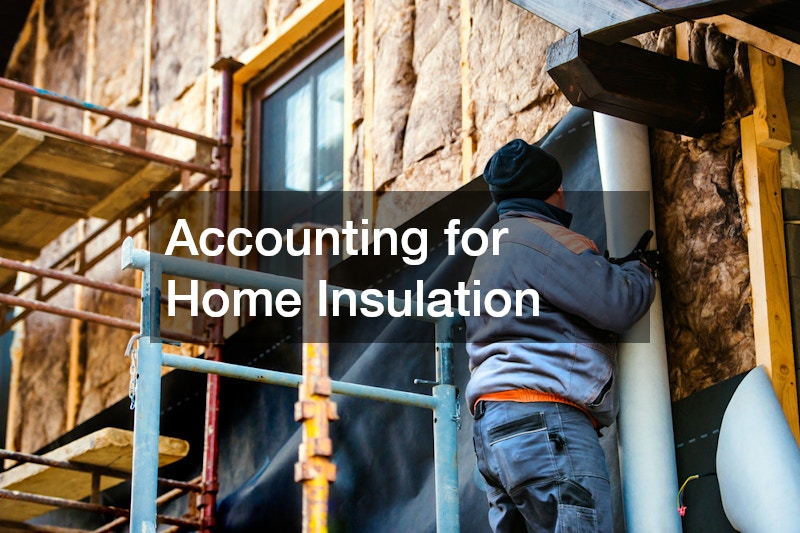When it comes to HVAC systems, one size does not fit all. Properly sizing your HVAC system is crucial for ensuring optimal performance, energy efficiency, and comfort in your home. In this comprehensive guide, we will delve into the intricacies of HVAC system sizing and provide valuable insights and advice to help you make informed decisions. From assessing your home’s square footage to evaluating climate considerations and system efficiency ratings, we’ve got you covered every step of the way. Let’s get started on understanding HVAC system sizing.
Understanding HVAC System Sizing

Choosing the right HVAC contractor is essential in ensuring that your HVAC system is properly sized for your home. An experienced contractor will conduct a thorough assessment of your home’s heating and cooling needs, taking into account factors such as square footage, insulation levels, and climate considerations. By working with a knowledgeable HVAC company, you can rest assured that your system will be sized correctly to deliver maximum comfort and energy efficiency.
Proper HVAC sizing is not just about selecting the biggest unit available. Oversized HVAC systems can lead to short-cycling, increased energy consumption, and uneven temperature distribution. On the other hand, undersized systems may struggle to meet your home’s heating and cooling demands, resulting in discomfort and inefficiency. With expert HVAC advice, you can avoid these pitfalls and ensure that your system is perfectly tailored to your home.
By understanding HVAC system sizing principles, you can make informed decisions when it comes to upgrading or installing a new HVAC system. Whether you’re looking for AC installation service or furnace replacement, knowing the importance of proper sizing will enable you to communicate effectively with HVAC professionals and make the right choices for your home.
Assessing Your Home’s Square Footage
When it comes to HVAC advice, one of the fundamental factors to consider is your home’s square footage. The size of your home plays a critical role in determining the capacity and efficiency requirements of your HVAC system. By assessing the square footage of your living space, you can ensure that your HVAC system is appropriately sized to provide consistent comfort and optimal performance.
AC installation service providers often take into account the square footage of each room in your home to calculate the total cooling and heating load. By accurately measuring the square footage and volume of each area, HVAC professionals can determine the right system size to maintain comfortable temperatures throughout your home. With precise calculations and proper sizing, you can avoid unnecessary energy costs and ensure long-term efficiency.
Before investing in a new HVAC system, it’s essential to consult with experienced HVAC services to evaluate your home’s square footage and heating/cooling requirements. By partnering with knowledgeable professionals, you can receive expert guidance on choosing the right system size for your specific needs and budget.
Evaluating Climate Considerations
When seeking HVAC advice for system sizing, it’s crucial to factor in climate considerations specific to your region. Climate plays a significant role in determining the heating and cooling requirements of your home, influencing the size and efficiency of your HVAC system. By evaluating local climate data and seasonal temperature fluctuations, you can optimize your system for year-round comfort and energy savings.
HVAC companies often take into account regional climate variations when recommending system sizes and efficiency ratings to homeowners. By understanding how temperature extremes and humidity levels impact your heating and cooling needs, you can make informed decisions about HVAC system sizing and performance. With expert advice tailored to your environment, you can achieve optimal comfort and energy efficiency in any climate.
By collaborating with HVAC professionals who specialize in climate-specific solutions, you can ensure that your system is designed to handle the demands of your local weather conditions. Whether you reside in a hot and humid climate or a cold and dry region, targeted HVAC advice will help you select the right system size and features to maintain indoor comfort year-round.
Accounting for Home Insulation

Proper insulation is a key factor in determining the size and efficiency requirements of your HVAC system. Well-insulated homes retain heat in winter and cool air in summer, reducing the workload on your heating and cooling equipment. By evaluating your home’s insulation levels, you can optimize system sizing and performance for enhanced comfort and energy savings.
HVAC companies often recommend upgrading insulation in conjunction with HVAC system installations to improve overall efficiency and comfort. By addressing insulation gaps and ensuring adequate thermal barriers, you can minimize heat loss and gain, thereby reducing the size and capacity needed for your HVAC system. With comprehensive insulation solutions and expert advice, you can maximize the performance of your heating and cooling equipment.
Before selecting a new HVAC system, consult with HVAC contractors who specialize in energy-efficient solutions and home insulation services. By integrating insulation upgrades with proper system sizing, you can enhance comfort and reduce energy costs while extending the lifespan of your HVAC equipment. With tailored advice and comprehensive insulation assessments, you can achieve optimal performance and efficiency in your home.
Analyzing Window and Door Placement
Window and door placement in your home can significantly impact the heating and cooling requirements of your HVAC system. Poorly insulated windows and doors can result in heat transfer and air leakage, affecting indoor comfort levels and system efficiency. By analyzing the placement and condition of windows and doors, you can optimize your HVAC system size and performance for improved energy savings and comfort.
HVAC repairs often include recommendations for upgrading windows and doors to enhance insulation and minimize energy loss. By investing in energy-efficient windows and doors, you can reduce heat gain in summer and heat loss in winter, alleviating the strain on your HVAC system. With expert advice on window and door solutions, you can create a more comfortable and efficient indoor environment while lowering your energy bills.
Before installing a new HVAC system, consider consulting with residential HVAC professionals who offer customized solutions for window and door efficiency. By addressing potential air leakage and thermal bridging issues, you can optimize system sizing and performance to meet your home’s specific needs. With tailored advice on window and door placement, you can maximize the efficiency and longevity of your HVAC equipment.
Considering Home Orientation
Home orientation plays a critical role in determining the heating and cooling requirements of your HVAC system. The position of your home in relation to the sun and prevailing winds can impact indoor temperature fluctuations and energy consumption. By considering your home’s orientation and solar exposure, you can optimize system sizing and efficiency for enhanced comfort and savings.
Residential HVAC experts often analyze home orientation and solar heat gain to recommend the appropriate system size and features for optimal performance. By strategically placing HVAC equipment and ductwork in relation to sunlight and wind patterns, you can minimize energy waste and maximize comfort throughout your home. With personalized advice on home orientation considerations, you can achieve a more efficient and sustainable heating and cooling system.
Before installing a new HVAC system, consult with HVAC professionals who specialize in home orientation assessments and energy-efficient solutions. By addressing orientation-related challenges and implementing strategic design modifications, you can reduce energy costs and enhance indoor comfort all year round. With expert HVAC advice on optimizing home orientation for HVAC efficiency, you can enjoy a more comfortable and environmentally friendly living space.
Utilizing Manual J Calculation

Manual J calculation is a fundamental tool used by HVAC companies to accurately size heating and cooling systems for residential and commercial properties. This comprehensive calculation method takes into account factors such as square footage, insulation levels, climate data, and window placement to determine the appropriate system size and capacity. By utilizing Manual J calculation, HVAC professionals can provide precise recommendations tailored to your home’s specific needs.
HVAC contractors rely on Manual J calculation to ensure that your system is sized correctly for optimal performance and efficiency. By inputting detailed information about your home’s structure, orientation, and thermal characteristics, contractors can generate accurate load calculations and select the most suitable HVAC equipment for your property. With Manual J calculation, you can avoid oversized or undersized systems and achieve the perfect balance of comfort and energy savings.
Before investing in a new HVAC system, it’s essential to work with HVAC companies that utilize Manual J calculation for system sizing and selection. By partnering with professionals who prioritize accuracy and precision in their calculations, you can benefit from a customized heating and cooling solution that meets your unique requirements. With expert HVAC advice on Manual J calculation and system design, you can achieve optimal comfort and efficiency in your home.
Evaluating System Efficiency Ratings
System efficiency ratings are essential considerations when sizing an HVAC system for your home. Energy efficiency ratings, such as SEER (Seasonal Energy Efficiency Ratio) for air conditioners and AFUE (Annual Fuel Utilization Efficiency) for furnaces, indicate how well a system converts energy into heating or cooling output. By evaluating system efficiency ratings, you can make informed decisions about the size and performance of your HVAC equipment.
HVAC maintenance professionals often advise homeowners to choose systems with high efficiency ratings to maximize energy savings and comfort. By selecting equipment with superior SEER and AFUE ratings, you can reduce utility costs and environmental impact while enjoying consistent indoor temperatures year-round. With expert advice on system efficiency ratings, you can select a system that meets your energy efficiency goals and performance expectations.
Before purchasing a new HVAC system, consult with HVAC professionals who specialize in energy-efficient solutions and system optimization. By evaluating different models based on their efficiency ratings and performance metrics, you can choose a system that aligns with your budget and sustainability objectives. With expert HVAC advice on system efficiency ratings and long-term benefits, you can invest in a high-performing HVAC system that delivers exceptional comfort and savings.
Consulting With HVAC Professionals
When it comes to HVAC advice, consulting with experienced professionals is key to ensuring the proper sizing and installation of your HVAC system. HVAC professionals possess the knowledge and expertise to assess your home’s heating and cooling needs accurately, taking into account factors such as square footage, insulation levels, and climate considerations. By consulting with HVAC experts, you can receive personalized recommendations and guidance on selecting the right system for your home.
HVAC installation services provided by reputable professionals involve a comprehensive assessment of your home’s layout and requirements to determine the ideal system size and features. By partnering with HVAC experts, you can avoid common pitfalls such as oversized or undersized systems and ensure that your equipment is optimized for energy efficiency and comfort. With expert advice and support throughout the installation process, you can achieve a seamless HVAC system that meets your expectations.
Before embarking on an HVAC installation or replacement project, schedule a consultation with HVAC companies that prioritize customer satisfaction and quality service. By discussing your needs and goals with knowledgeable professionals, you can gain valuable insights into system sizing, efficiency ratings, and maintenance requirements. With personalized advice and tailored solutions from HVAC experts, you can make informed decisions about your heating and cooling system to enhance comfort and energy savings.
Budgeting for Your HVAC System
When planning for HVAC system sizing and installation, budgeting is a crucial aspect that should not be overlooked. Establishing a realistic budget based on your home’s size, energy efficiency goals, and long-term savings objectives can help you make informed decisions about system selection and features. By setting a budget and consulting with residential plumbing professionals, you can prioritize essential components and upgrades for your HVAC system.
HVAC advice often includes recommendations for budget-friendly solutions that balance performance, efficiency, and cost-effectiveness. By working closely with HVAC professionals, you can explore different options and financing plans to accommodate your budget and achieve your heating and cooling goals. With expert advice on cost-effective system sizing and installation, you can invest in a high-quality HVAC system that delivers long-term value and savings.
Prior to committing to an HVAC system purchase, consult with a reputable residential plumber that offer transparent pricing and flexible financing options. By discussing your budget constraints and requirements with experienced professionals, you can receive customized recommendations and quotes that align with your financial objectives. With expert advice on budget-friendly HVAC solutions, you can make smart investments in your home’s comfort and energy efficiency.
Planning for Future Needs

As you consider HVAC system sizing and installation, it’s essential to plan for future needs and potential upgrades. By anticipating changes in your lifestyle, home layout, or energy efficiency goals, you can select a system that accommodates future expansions and enhancements. With forward-thinking HVAC advice, you can future-proof your system and ensure long-term comfort and performance.
HVAC companies often recommend scalable solutions and smart technologies that allow for easy upgrades and modifications in the future. By investing in a flexible and adaptable HVAC system, you can seamlessly integrate new features, equipment, or energy-saving technologies as your needs evolve. With expert advice on future-proofing your HVAC system, you can stay ahead of the curve and maximize the value of your investment.
Before finalizing your HVAC system selection, consult with HVAC maintenance professionals who offer tailored solutions for future-proofing your equipment. By discussing your long-term goals and potential enhancements with knowledgeable experts, you can design a system that grows with your needs and priorities. With personalized advice on future-proofing strategies and upgrades, you can enjoy a reliable and efficient HVAC system for years to come.
Proper HVAC system sizing is essential for optimizing comfort, energy efficiency, and performance in your home. By understanding factors such as square footage, insulation levels, climate considerations, and system efficiency ratings, you can make informed decisions about selecting the right HVAC equipment. Consulting with HVAC professionals, budgeting effectively, and planning for future needs are key steps in achieving a well-sized and high-performing HVAC system. With expert HVAC advice and support throughout the process, you can enjoy a comfortable and energy-efficient indoor environment that meets your needs and exceeds your expectations.



